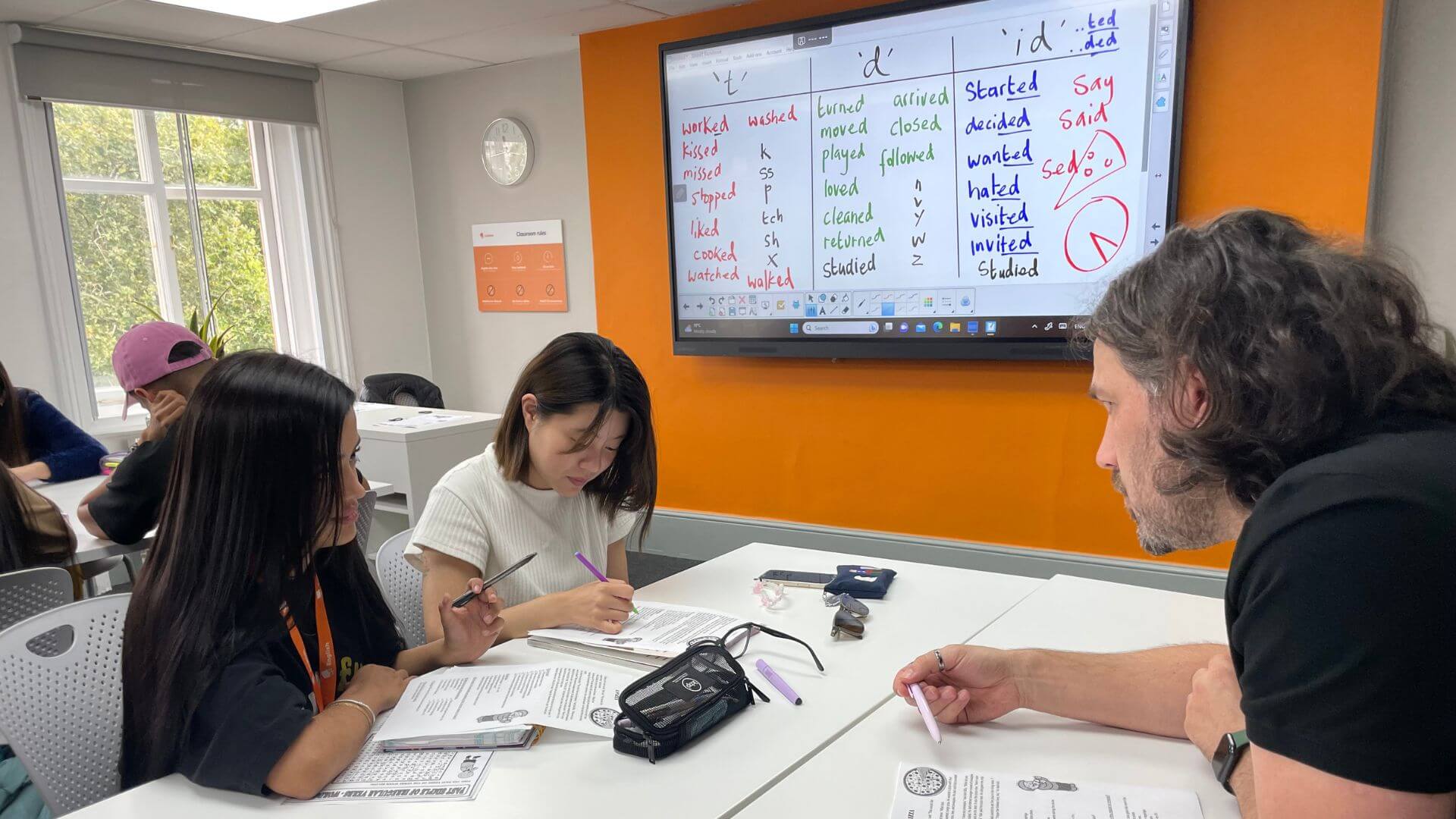
Construye una base sólida con nuestros cursos de inglés en Londres
Al ofrecer cursos de inglés de calidad, ES ha creado una nueva etapa en los estudios de inglés. Lee más sobre los beneficios únicos de estudiar en nuestra escuela de inglés.

¿Te gusta nuestro post? ¡Compártelo ahora!
Have you ever struggled to connect your ideas smoothly in English? Maybe you’ve written two short sentences and wondered, How can I make this sound more natural? Well, subordinating conjunctions are here to help! These special words, like ‘although,’ ‘since,’ ‘while,’ ‘because,’ and ‘if,’ help connect two ideas in a logical way. They show relationships between thoughts, such as cause and effect, contrast, time, and condition. If that sounds complicated—don’t worry! By the end of this blog, you’ll feel confident using subordinating conjunctions in your own writing and conversations. Let’s explore them step by step!
A subordinating conjunction is a word that connects an independent clause (a complete sentence) with a dependent clause (a sentence that doesn’t make sense on its own).
Here’s a simple example:
‘I stayed inside’ = a complete sentence.
‘Because it was raining’ = not a complete sentence
‘Because’ = subordinating conjunction, linking the two ideas.
Without ‘because,’ the second part wouldn’t make sense. That’s the magic of subordinating conjunctions—they link thoughts smoothly and logically!
Subordinating conjunctions can express different relationships between ideas. Let’s look at the most common ones with examples.
These conjunctions explain why something happened.
Common words: because, since, so that
Ejemplos:
👉 Tip: ‘Because’ is more common in spoken English, while ‘since’ and ‘as’ are more formal.
These words show contrast or an unexpected result.
Common words: although, though, even though, whereas, while
Ejemplos:
👉 Tip: ‘Although’ and ‘even though’ are used in a similar way. ‘Even though’ is stronger and more emphatic.
These words connect actions and show when they happen.
Common words: when, while, before, after, until, as soon as
Ejemplos:
👉 Tip: If you start a sentence with one of these conjunctions, put a comma before the second part:
Before I moved to London, I searched for an English learning course near me.
These conjunctions describe a condition—something that must happen first.
Common words: if, unless, provided that, as long as
Ejemplos:
👉 Tip: ‘Unless’ means ‘if not.’ So instead of saying, ‘If you don’t hurry, you’ll be late,’ you can say, ‘Unless you hurry, you’ll be late.’
A comparison clause is used to compare two things.
Common words: than (for differences), as (for equality or similarity), the more / the less
Ejemplos:
👉 Tip: When using ‘than’ for comparison, avoid repeating unnecessary words. Instead of saying, “She speaks English better than I speak English,” just say, “She speaks English better than I do.”
Now that you know different types of subordinating conjunctions, let’s focus on word order.
You can put the subordinating conjunction in the middle or at the beginning of a sentence:
👉 Tip: If the dependent clause comes first, add a comma before the main sentence.
Fill in the blanks with the correct subordinating conjunction:
Check Out The Correct Answers Here!
By now, you should feel more comfortable using subordinating conjunctions! They help connect ideas, making your English sound more fluent and natural. Want to practice more? Study English in London with us! We offer fun and interactive lessons to help you improve your English quickly. Our teachers focus on practical grammar, so you can learn English in London easily using real-life situations. Whether you need grammar, conversation practice, or IELTS preparation, our courses are designed to help you kickstart your English studies in London!
¿Te gusta lo que lees? Nos encanta mantenerte al día de todo lo que ocurre en ES. Echa un vistazo a nuestros diferentes cursos, datos interesantes sobre Londres, noticias, actualizaciones, increíbles historias de éxito nuestras y mucho más.

Al ofrecer cursos de inglés de calidad, ES ha creado una nueva etapa en los estudios de inglés. Lee más sobre los beneficios únicos de estudiar en nuestra escuela de inglés.

¿Busca formas de explorar Londres con facilidad? Descubra las mejores aplicaciones que convertirán su smartphone en el mejor compañero de viaje, haciendo que cada trayecto por esta bulliciosa ciudad sea coser y cantar.

¿Listo para convertirte en un mago de las palabras? Aquí tienes una sencilla lección para entender modales ingleses como "can", "could" y "will", ¡y darle un poco más de encanto a tus conversaciones!
No decimos eso,
En ES Education, hacemos del aprendizaje del inglés una experiencia memorable y divertida para cada estudiante. Estamos orgullosos del ambiente familiar de nuestra escuela. Al aprender y descubrir Londres con nosotros en una comunidad diversa, ¡la escuela se convertirá en un segundo hogar!

Ofrecemos cursos de inglés a tiempo completo y a tiempo parcial para estudiantes internacionales.
27-28 Woburn Square, WC1H 0AA, London, United Kingdom
inquiries@esworld.com
+44 749 034 2009
inquiries@esworld.com
+44 749 034 2009
27-28 Woburn Square, WC1H 0AA, London, United Kingdom